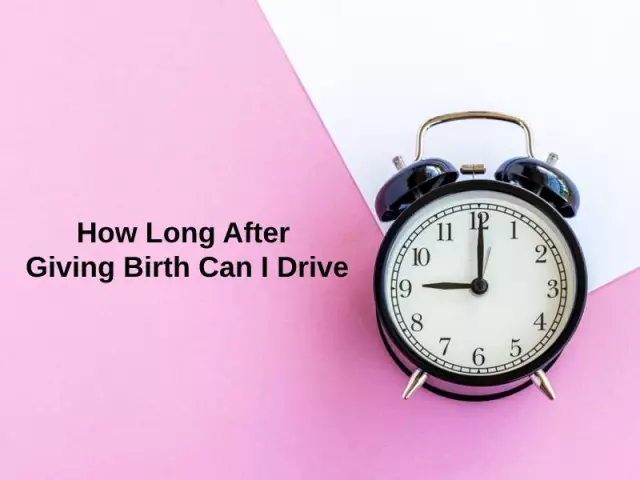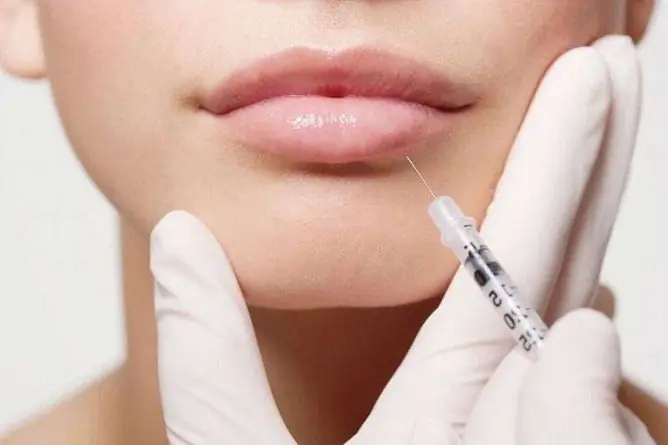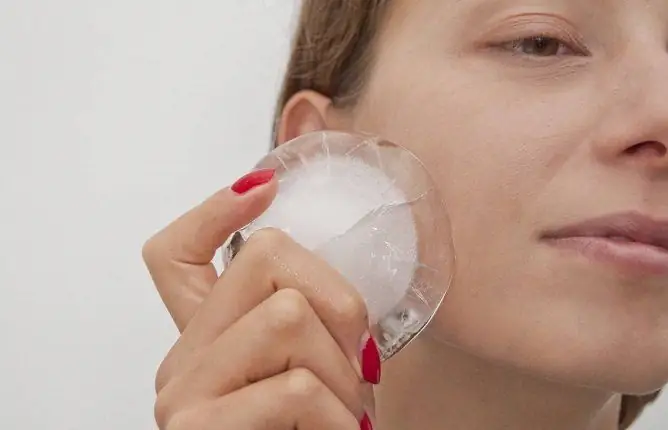- Author Rachel Wainwright wainwright@abchealthonline.com.
- Public 2023-12-15 07:39.
- Last modified 2025-11-02 20:14.
Get out of hibernation. How to quickly recuperate after a long winter
Spring is a paradoxical time of the year. There are more sunny days, the streets have cleared of snow, it would seem that it is a good time for walks, trips and, in principle, for more physical activity than in winter. However, in fact, for many of us, the arrival of spring is accompanied by inexplicable weakness, increased fatigue and, as a result, high irritability and anxiety. Why it happens? It's all about the seasonal exhaustion of the body, a condition that doctors call spring asthenia.
Why do we get tired more in spring?
Asthenia or asthenic syndrome is considered to be fatigue that occurs against the background of mental or physical stress that is familiar to a person and does not pass (this is the main criterion) after rest.
Many factors lead to asthenia - and this is a problem, because in this case it can be difficult to establish what caused the condition. Doctors believe that there are three main types of asthenia:
- Reaction to increased loads (reactive asthenia). This type of asthenia often occurs after prolonged mental, physical and emotional stress, disturbances in sleep and wakefulness, for example, in students after a session, in office workers during the reporting period, and so on.
- Asthenia that occurs after an illness (secondary asthenia). An example is, familiar to everyone, pronounced weakness after the flu or SARS. Secondary asthenia often accompanies liver disease, endocrine and neurological pathology.
- Functional asthenia (neurasthenia) is severe fatigue that occurs for no apparent reason and lasts at least 6 months.
There is also a seasonal surge in asthenia - according to statistics, up to 40% of people of different ages complain of increased fatigue, difficulties in work in early spring. This is due to the traditional, at the end of winter, lack of vitamins and depletion of the body's internal reserves.

How is asthenia manifested?
Obviously, the main symptom of asthenia is increased fatigue, which occurs "out of the blue", that is, after the usual human loads. Weakness and fatigue do not go away after rest, so on Monday morning, a person feels as overwhelmed as on Friday after a hard week. Other symptoms follow for weakness:
- Apathy;
- Anxiety;
- Absent-mindedness, inability to concentrate;
- Sleep disturbances;
- Memory problems;
- Headaches.
Add to this irritability, increased nervous excitability, resentment and you will be surprised to find out the average office worker in the midst of working days.
How to deal with asthenia?
Firstly, of course, it is necessary to exclude risk factors for asthenic syndrome and try to change your lifestyle - eat properly, get a good sleep, and finally go on vacation. However, in most cases of asthenia, you cannot do without medical help.
To treat asthenia, doctors use different groups of drugs: vitamins, adaptogens, and even antidepressants. However, in recent years, specialists have included neuroprotective drugs in the complex therapy, which help to cope with such conditions accompanying asthenia as memory loss, concentration, distraction and anxiety.
Neuroprotective agents are a group of drugs that increase the resistance of the brain to excessive stress, can stimulate mental activity, activate brain functions, improve memory and increase the ability to learn.
Let us consider briefly the three main representatives of the group of neuroprotective agents that are used to treat asthenia.
Gliatilin. Nootropic drug containing vitamin B4 - choline. Gliatilin is available in injection solutions and capsules. In this case, the capsule should be taken 3 times a day, which is not very convenient for people with an active lifestyle. In addition, the course of admission is designed for a month, but there are only 14 capsules in the package of the drug, so for full treatment you will need to visit the pharmacy several times.
Ceraxon. The active substance of this drug, citicoline, is an intermediate element in the synthesis of the structural components of cell membranes. Citicoline has a wide spectrum of action - it helps to restore damaged cell membranes, prevents their death. In asthenia, citicoline is effective in treating cognitive disorders such as memory impairment, lack of initiative, difficulty in performing daily activities, and also increases the level of attention and consciousness.
Recognized. A modern neuroprotective drug with the active substance citicoline. Citicoline is a precursor of one of the main components of cell membranes. Studies have shown that in addition to strengthening neuronal membranes, citicoline helps to increase the density of dopamine and acetylcholine receptors. In this regard, Recognan is used not only as a means of treating various diseases, but also as a drug that helps to improve cognitive functions and psycho-emotional state. Like the previous drug, Recognan is a physiological neuroprotector, since the active substance of the drug is similar in structure to substances - the structural units of human nervous tissue, and therefore Recognan is well tolerated.

Particularly noteworthy is the convenient form of release of the drug Recognan - oral solution in sachets. To improve the condition, one sachet per day is enough, since one sachet contains the recommended daily dosage of the drug. The effect is noticeable after 2 weeks of admission, the effect persists or increases until the end of therapy. It is recommended to apply for at least 1 month.
If you feel that with the arrival of spring you are not gaining strength, you are tired and weak even from normal work, you cannot concentrate, you began to notice that memory problems have appeared, then probably spring asthenia did not pass you by. The best way out in this situation would be to consult a doctor to establish the causes of asthenic syndrome and possibly use modern neuroprotective drugs with a convenient form of administration.
Found a mistake in the text? Select it and press Ctrl + Enter.






